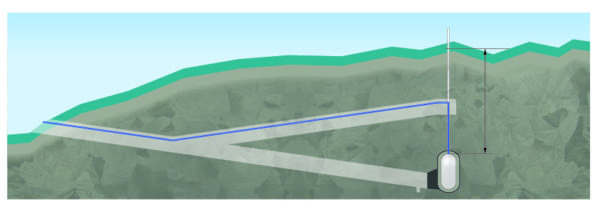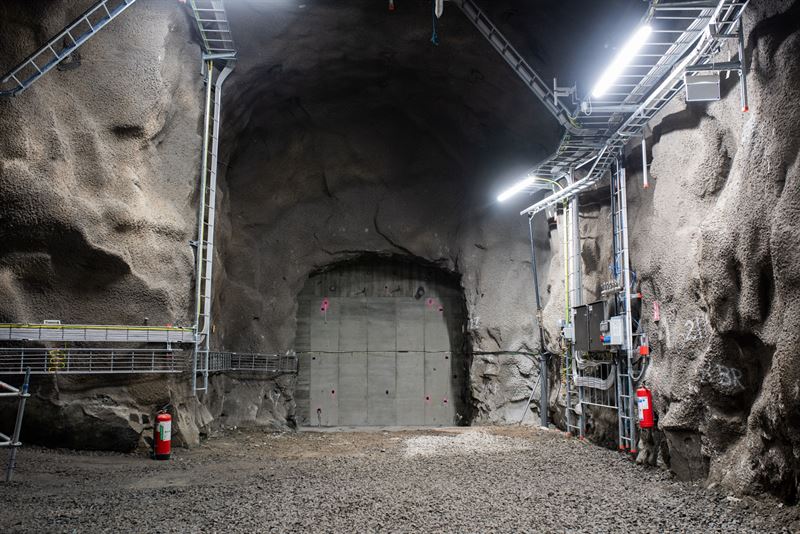Vattenfall, Swedish steelmaker SSAB, and Swedish state-owned miner LKAB have finished building a rock cavern storage facility for green hydrogen near Luleå, northern Sweden.
“The inauguration ceremony marks the start of the two-year test period, which will run until 2024,” the companies said in a joint statement. “Hydrogen gas and its storage are central to our transition.”
The SEK 200 million ($18.8 million) Hybrit pilot facility is owned in three equal parts by the three companies. It is expected to start storing green hydrogen later this year.
The 100-cubic-meter lined rock cavern (LRC) was built approximately 30 meters below ground via the so-called lined rock cavern (LRC) approach. Under LRC methods, the walls of caverns are covered with a sealing layer.
“At a later stage, a full-scale hydrogen gas storage facility measuring 100,000 to 120,000 cubic meters may be required, in which case it will be able to store up to 100 GWh of electricity converted to hydrogen gas, which is sufficient to supply a full-sized sponge iron factory for three to four days,” the companies said.
Popular content

“In four years, Hybrit technology will be used on a large scale in the first demonstration plant in Gällivare, and the plan is to then build more sponge iron factories,” said Lars Ydreskog, senior vice president of strategic projects for LKAB.
A recent study by the Jülich Institute for Energy and Climate Research (IEK-3) showed that salt caverns offer a flexible, efficient option for hydrogen storage. The research group estimates that Europe has the technical potential to store 84.8 PWh of hydrogen in bedded salt deposits and salt domes.
The IEK-3 researchers said the proximity of the caverns to the Swedish coast will be helpful, as brine disposal remains economical up to 50 km from the sea.
This content is protected by copyright and may not be reused. If you want to cooperate with us and would like to reuse some of our content, please contact: editors@pv-magazine.com.



3 comments
By submitting this form you agree to pv magazine using your data for the purposes of publishing your comment.
Your personal data will only be disclosed or otherwise transmitted to third parties for the purposes of spam filtering or if this is necessary for technical maintenance of the website. Any other transfer to third parties will not take place unless this is justified on the basis of applicable data protection regulations or if pv magazine is legally obliged to do so.
You may revoke this consent at any time with effect for the future, in which case your personal data will be deleted immediately. Otherwise, your data will be deleted if pv magazine has processed your request or the purpose of data storage is fulfilled.
Further information on data privacy can be found in our Data Protection Policy.